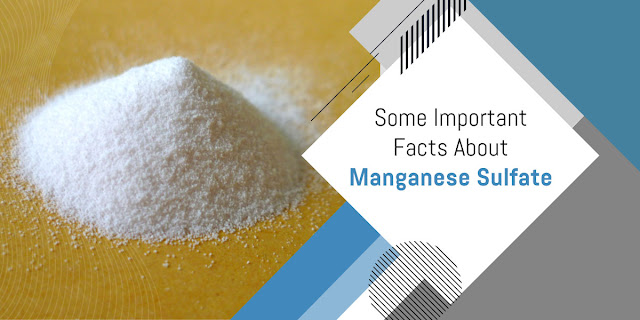What are the various purposes, Zinc Stearate is used for?
To keep water at bay, use Zinc Stearate. Common applications for zinc stearate include those of a releasing agent, heat stabiliser, and lubricant in the production of polymers like polyolefin, polystyrene, and rubber. When applied to wood, zinc stearate acts as a sanding additive for lacquers. Zinc stearate acts as a lubricant and thickener in cosmetics to get the desired effect. The commercial stearic acid used to make the insoluble salt is a moderate fatty acid that serves as a lubricant as well as an emollient. Mixtures using zinc oxide are common. On its alone, zinc has been shown to be effective against bacteria and viruses. If you are looking for the best Zinc Stearate supplier in Ecuador, Palvi Chemicals is the right place for you.
Appearance:
The powdered form of zinc stearate is incredibly fine, mild,
and colourless. Extremely fine particle size is one of the hallmarks of this
high-quality substance. A faint fatty acid aroma may be detectable due to the
presence of long-chain fatty acids, although the odour is not overpowering.
When heated, zinc stearates start to get dissolved in chlorinated hydrocarbons
as well as aromatic compounds, but they don't dissolve in alcohol or ethers.
Safety:
The Cosmetics Database classifies Zinc Stearate as a low-to-moderate danger ingredient, depending on the grade used, and it has received approval from the FDA and CIR. A higher incidence of cancer, allergies, and organ damage are only some of the issues brought forth. Of course, the animals in this research were given quite large doses of the chemical. Zinc stearate is an irritant to humans but has been shown to be safe in animal studies when used as directed, according to the Occupational Safety and Health Administration.
When stearic acid is hydrolyzed, it yields zinc stearate, which is used in paints and varnishes. It has the following qualities: It is fine, white, and smooth to the touch
●
Under
high-temperature conditions, it maintains a high degree of stability.
●
It
is impervious to water, giving it a repellent quality.
●
It
has excellent water resistance and repellent qualities.
●
It
works wonderfully as a separator.
●
It's
useful in some operations because it provides zinc.
Applications:
Because of its many desirable qualities, zinc stearate finds
application in numerous fields. As an example, zinc stearate is widely utilised
in the rubber and plastics industries as a lubricant, release agent, as well as
a heat stabiliser. It's an essential component of wood finishes that helps
smooth the wood once it's been coated. You can use zinc stearate as a
thickening and lubricant in your makeup. Zinc stearate manufactured and
supplied by the most distinguished Zinc
Stearate distributor in Ecuador can be used in a wide variety of
applications due to its lubricating properties, water repellency, gelling
capacity, and non-stick texture.
-
Vulcanized
Rubber:
Since zinc enhances the interaction
of sulphur with polyolefin, zinc stearate is referred to as a
"vulcanization activator." Because of its high solubility in the
polyolefins’ apolar region, zinc stearate greatly aids in dispersion. It acts
as a polyolefin antacid, helping to maintain colour and protecting against
rust.
-
Cosmetics:
The liquid and greasy components of cosmetics are held together by the lubricant and thickening zinc stearate. The product's overall aesthetic quality is enhanced as a result as well.
It is commonly found in cosmetic
products like eyeliner, eye shadows, face masks, lipsticks, face powders, and
foundation creams. The addition of zinc stearate makes the mixture more fluid
and smooth.
-
Metallurgy’s
Separating Agent:
It works well as a detaching agent
for metal and plastic machine parts that are particularly stubborn to
disassemble. As a result, the finished product is not ruined by the components
sticking to the mould.
-
Paints and
Varnishes:
Zinc stearate, in its purest form, is used to make varnishes and paints due to its transparency.
It's a thickening, sealant for
surface flaws, and excellent dispersant all in one. It also has water-repellent
characteristics, so it can keep the paint dry.
-
Powder
Metallurgy:
The metal powder is combined with zinc stearate, which is a lubrication ingredient exported by Palvi Chemicals, an excellent Zinc Stearate exporter in Ecuador. The lubricants might make up anything between 0.5% and 5.0% of the total mass.
Lubricants have the opposite effect of binders during the pressing phase of compacting, improving flow and compressibility. To varying degrees, the material's ultimate characteristics and porosity are affected by the proportions of the two additions. Compared to other lubricants, zinc stearate is superior because it contributes zinc to the alloy, which can improve the efficiency of the process.
After being compacted in a press, the
"green" section is sent to a sintering oven, where its additives are
burned off.
-
Colour and
Plastics Additives:
Similar to other variants of stearates, this has many uses in the plastics sector.
●
When
making PVC, it acts as a stabiliser as well as a lubricant.
●
When
used in Masterbatch, it helps to disperse the various colours.
●
Transparent
polymers for glass and others are employed in impact glass applications because
of their durability and safety.
● Used in polyurethane as a metal deactivator.
-
Lubricant in
Extruders:
Calcium stearate is often used to enhance output in manufacturing processes like plastic extrusion and metal lamination. When added to the feed hopper, the calcium stearate acts as a solid lubricant as well as an additive. Dosages range from 0.3% to 1.0%. This maintains its form even when heated to high temperatures, and it enhances the following aspects of production:
●
Product
homogeneity
●
Hot
spots
●
Energy
consumption
●
Saving
raw materials



Comments
Post a Comment